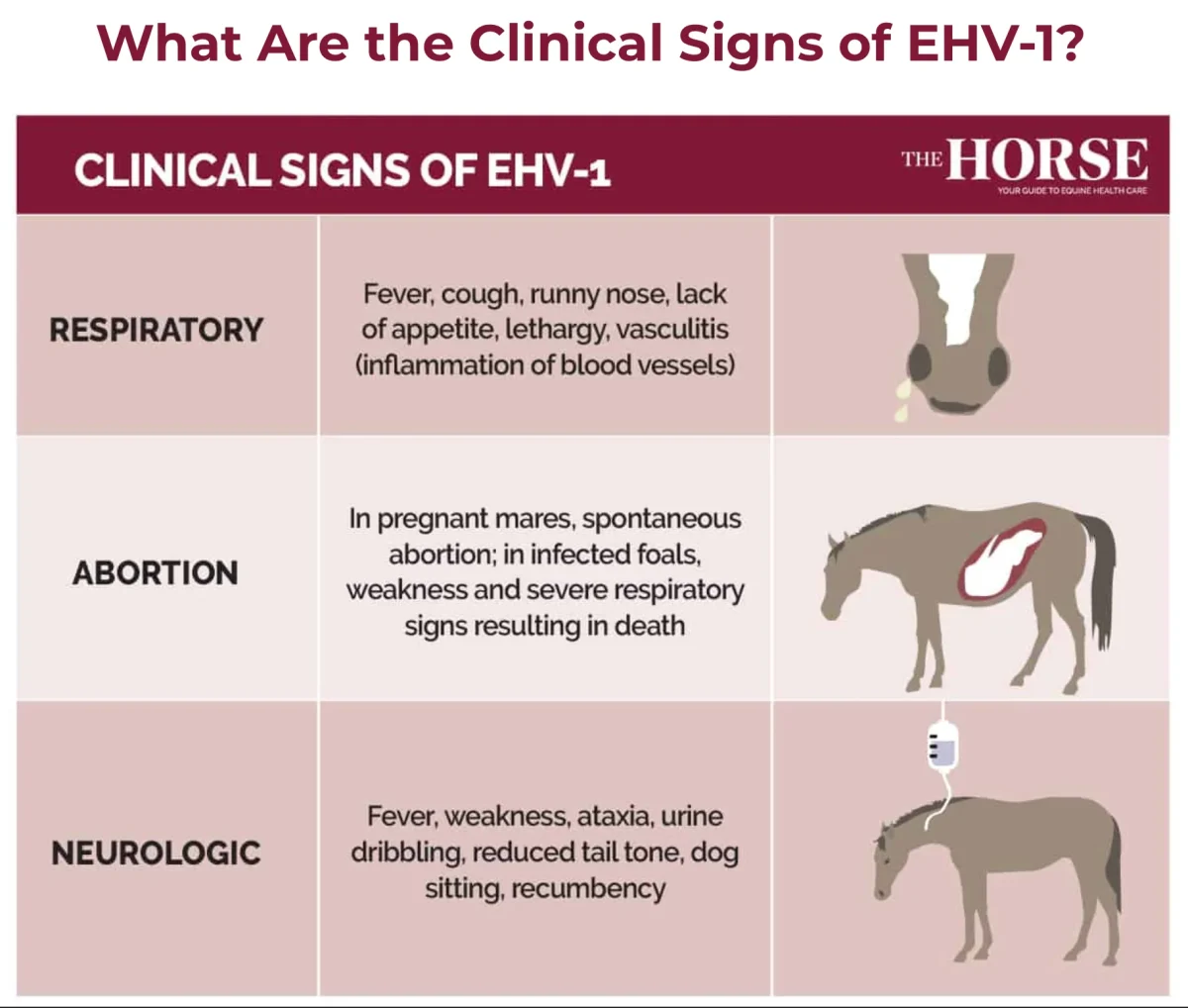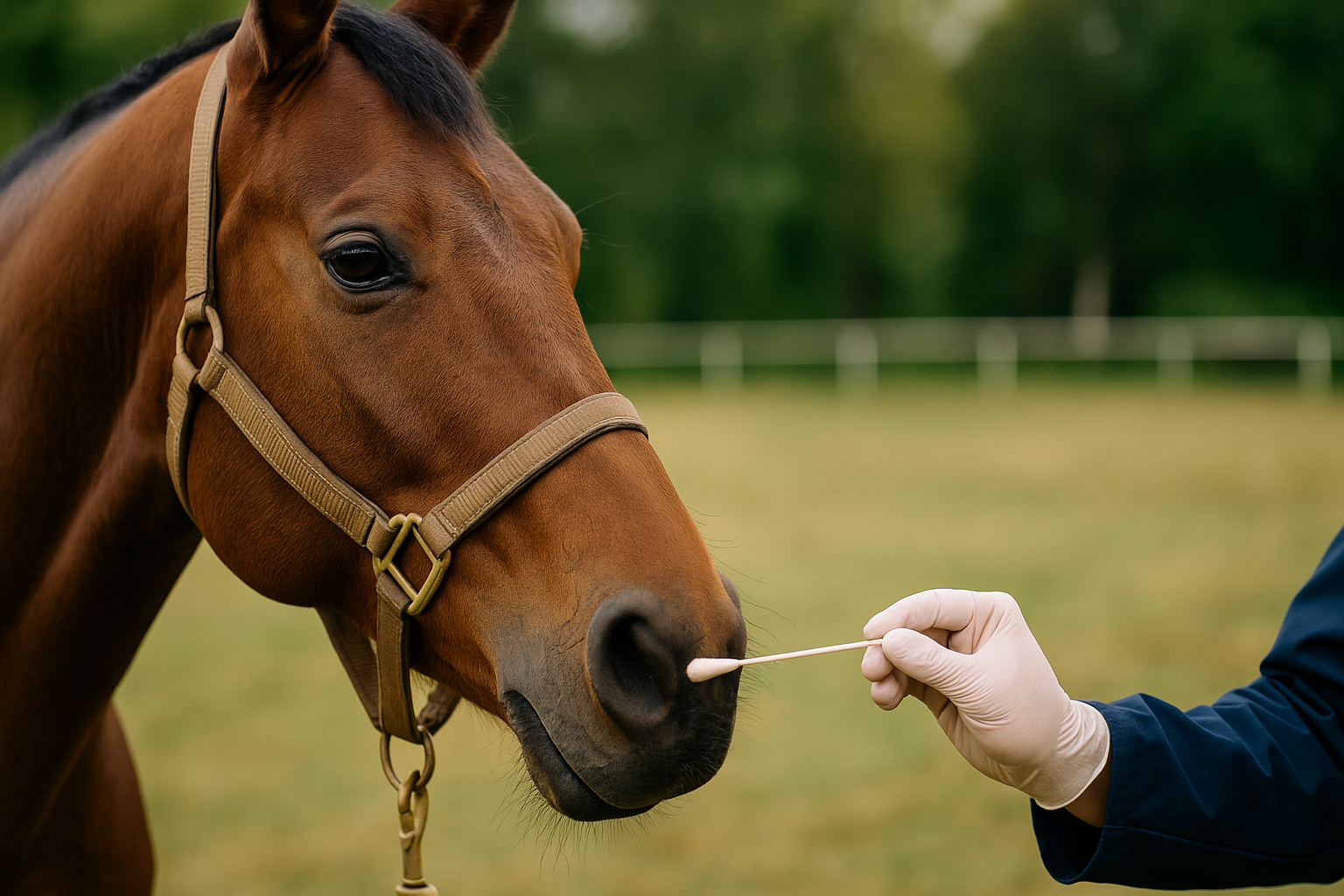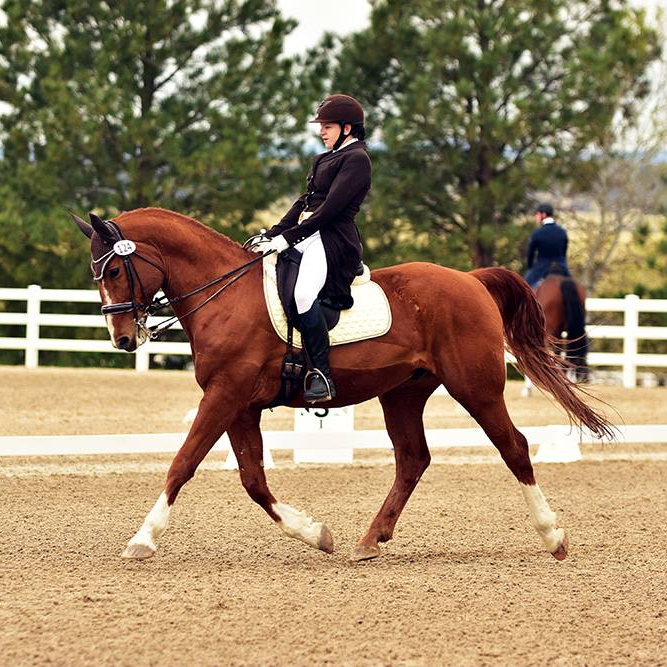
Reports of a serious Equine Herpesvirus-1 (EHV-1) outbreak connected to a recent event in Waco, Texas at the Women’s Professional Rodeo Association (WPRA) World Finals and Elite Barrel Race event Nov 5-9 have been circulating rapidly across social media. Several veterinary clinics have confirmed that horses returning from the event are becoming sick very quickly — and in many cases, the outcomes have been devastating.
While official investigations are still ongoing, early accounts indicate that some horses developed severe symptoms within hours, and several owners have already reported heartbreaking losses. The situation is evolving, but the message from veterinarians is clear: take precautions now.
URGENT ALERT: UPDATE 11/20: We have received a notification of a horse in Larimer County that has tested positive for EHV-1. The horse and the premises where it resides have been placed under quarantine to limit the spread of the virus.
URGENT ALERT: UPDATE 11/21: Original Colorado Horse with EHV-1 positive with no neurological signs has developed neurological signs overnight and is now classified EHM. We still only have 1 case of EHV/EHM in Colorado.
Current Nationwide Count: as of 12/5/2025 (you can view up to date counts here: https://www.equinediseasecc.org/news/article/Equine-Herpesvirus-Myeloencephalopathy-(EHM)-Outbreak)
EHV-1 with no neurologic signs: 9.
EHV-1 with no clinical signs: 4.
EHM with neurologic signs: 47.
With horses traveling home from major events across the region, now is the moment to stay alert, practice strict biosecurity, and rely on reputable sources for updates.
Added 11/20/2025 9:10am
From the Colorado State Veterinarian regarding the EHV outbreak:
Horse Owners: If your horses traveled to Texas, Oklahoma, or other equine events where EHV exposure may have occurred, please contact our office directly at 303-869-9130. We will provide guidance regarding isolation and monitoring:
Exposed horses should be isolated for 21 days after last known exposure.
Appropriate isolation includes restricted access to other horses, avoiding the sharing of equipment or personnel, and utilization of protective barrier precautions.
Exposed horses should be monitored twice daily for elevated temperature (above 101.5*), respiratory signs (nasal discharge, coughing), and for clinical signs consistent with equine herpes myeloenceophalopathy (neurologic symptoms including inability to stand, difficulty walking, lethargy, and urine dribbling). Maintain a log with temperatures and clinical signs.
If elevated temperature, respiratory signs, or EHM-compatible clinical signs are noticed, contact your veterinarian.
Upcoming equine events: Equine herpes virus can be shed for prolonged periods of time, including in clinically healthy horses, which increases risk for continued disease spread during a EHV/EHM outbreak.
Event Organizers: We recommend you consult with your veterinarian and understand the risks associated with hosting equine events during a multi-state outbreak. Cancellation or postponement of events may be important to stop continued spread of disease. If events do take place, we recommend short-timed health certificates within 72 hours and increasing biosecurity practices on site.
Horse Owners: We recommend that you consult with your veterinarian on the risks associated with travel to upcoming equine events. EHV is a ubiquitous virus and commonly present in the environment, so biosecurity measures are paramount to decreasing potential for disease transmission.

What Is EHV-1?

EHV-1 is Equine Herpesvirus Type 1 — a contagious virus known to cause:
- Fever
- Respiratory signs
- Neurological impairment
- Pregnant mare abortion
- And in severe cases, sudden or fatal complications
UC Davis School of Veterinary Medicine identifies it as an alphaherpesvirus that can spread quickly through barns, trailers, and event environments. Outbreaks frequently occur after horses attend large events where hundreds of horses are gathered, stressed, and exposed to unfamiliar horses and equipment.
The strain linked to the Waco event appears especially aggressive, according to veterinary hospitals in the region.
How EHV-1 Spreads
EHV-1 is highly contagious and spreads through:
- Direct horse-to-horse contact
- Aerosolized droplets from coughing or sneezing
- Contaminated objects (tack, brushes, bits, buckets, hay bags, etc.)
- Human hands, clothing, and equipment
- Shared water sources
- Stall surfaces, trailers, wash racks, tie rails
Because it can spread before clinical signs appear, biosecurity is critical.
AAEP Guidelines & Why Trusted Sources Matter
There is a lot of information — and misinformation — circulating right now. The American Association of Equine Practitioners (AAEP) provides the most accurate, up-to-date guidelines for EHV-1. Some of the terminology may be medical or technical, but it is essential to rely on veterinary organizations, licensed veterinarians, and state animal health authorities, not rumors or Facebook comments.
Outbreaks are frightening, but panic and misinformation make them worse. Horse owners should take reasonable precautions, stay informed, and use credible sources when making decisions.
The Responsibility of Leaving (and Returning to) the Barn
Any time horses travel off the property, they face the risk of exposure to infectious disease — and when they return, they may bring that risk back to the herd. Every owner, trainer, and boarder plays a role in protecting the horses at home.
Here’s a reminder of what responsible owners should do before heading to any show, clinic, or event:
1. Do Not Travel if Horses at Home Are Sick
If any horse in the barn has a fever, cough, nasal discharge, or looks unwell, stay home.
If multiple horses are sick, leaving the property could expose countless others.
2. Take Temperatures Before Loading Up
Know your horse’s normal. Start checking their temperature a few days before the event and again before leaving.
Normal is 99-101.5°F.
Finding a fever when you’re packed and ready is frustrating — but catching it early can prevent disease spread and protect your horse.
3. Sharing Is NOT Caring
To reduce transmission risk:
- Bring your own buckets
- Do not dip hoses into buckets
- Don’t let your horse graze from stray hay piles
- Avoid touching gates, panels, or shared surfaces unnecessarily
- No nose-to-nose contact with unfamiliar horses
- Avoid borrowing or lending tack, brushes, halters, bits, etc.
“No new friends” is a good rule during outbreaks.
4. Stay Current on Vaccinations
Vaccines do not prevent EHV-1 infection entirely, but they can:
- Reduce severity of illness
- Shorten recovery time
- Lower viral shedding
Talk to your veterinarian about what boosters your horse may need before attending events.
5. Don’t Spread Misinformation
This is supposed to be enjoyable — learning, traveling, competing, seeing friends.
Help keep it that way by:
- Fact-checking before posting or sharing
- Correcting misinformation kindly
- Encouraging calm, safe decision-making
Outbreaks require caution, not chaos.
What Owners Should Do Right Now
If your horse was in Waco, or if you’ve attended large events in the past two weeks:
- Take temperatures twice daily
- Isolate any horse with a fever
- Watch for:
- Nasal discharge
- Coughing
- Neurological signs (stumbling, weakness, incoordination)
- Disinfect equipment, trailers, and travel gear
- Avoid hauling or exposing horses to unfamiliar horses
- Minimize outside professionals unless necessary — and ask all professionals (farriers, vets, trainers, massage/bodyworkers) to sanitize hands and equipment before touching your horse
Looking Back: The 2011 EHV-1 Outbreak
A similar outbreak in 2011 resulted in:
- 2,100+ horses exposed
- 90 confirmed cases
- 72 suspected cases
- 13 deaths
- Affected 242 facilities in 19 states
This underscores why early precautions are so important.
Stay Vigilant — Not Fearful
As we wait for more official updates, now is the time to be proactive, not panicked.
Work closely with your veterinarian, practice strong biosecurity, and stay informed through reputable veterinary sources.
The Colorado Horse Forum will continue sharing updates as reliable information becomes available.
Sending strength, love, and healing thoughts to all horses and owners affected by the Waco outbreak.





Leave a Reply
You must be logged in to post a comment.